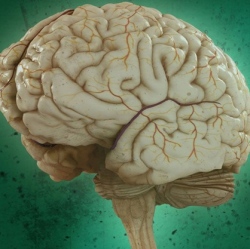
It’s been a good news week for medicine. Not only is there a vaccine to prevent HIV/AIDS in the works, but scientists at John Hopkins University and the National Insitutes of Health have also recently used a new drug to cure Down Syndrome in baby mice with just one dose. And although the drug has not yet been tested on humans, it still qualifies as an amazing achievement.
Down syndrome is a chromosomal condition. People born with it have extra copies of chromosomes, which cause problems with physical growth, along with severe learning disabilities. The cerebellum part of the brain (responsible for motor control) is generally smaller than normal for those with Down.
In this new study, mice were engineered to have Down Syndrome-like characteristics and then injected with a drug shortly after their birth. The drug consists of a molecule called SAG that activates a particular pathway in the brain, stimulating the brain to grow to a normal size. With just one dose, the brains of the mice grew normally and those mice showed learning abilities like that of their un-affected peers.
Down Syndrome is a common condition: 1 in every 691 babies in the US are born with it. It would be nice to think that this new drug will lead to a cure soon. Unfortunately, the SAG injection only worked on mice when used right after birth. Also, mice are not people, and this injection still doesn’t deal with the extra chromosomes that human Down Syndrome patients are born with. Finally, messing around with the human brain is serious business, and scientists are concerned about unintended consequences.
This research should not be taken lightly, though. Although many more studies will need to occur, these significant results suggest that a cure could be possible.
